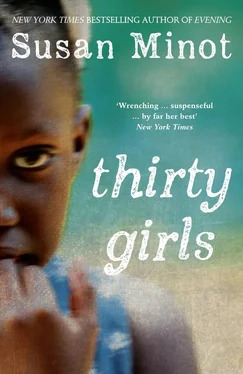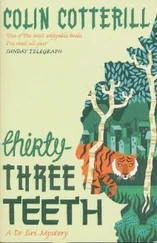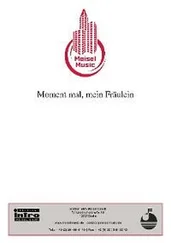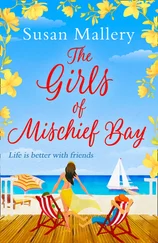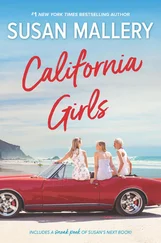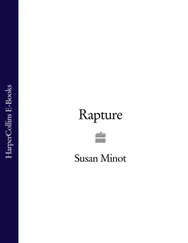1 ...8 9 10 12 13 14 ...17 But for me, death was not so surprising, even when it was your mother.
When?
Aunt Karen kept crying, crying. Three weeks it has been.
I have come too late, I said.
I am not permitted to go home. When you are abducted you are required to stay in the rehabilitation center for some weeks after you return. So it was at Kiryandongo that my family came to see me. Lira is an hour away by car and they would find a ride. They sent word when they were coming so I waited for that day.
When they arrived at the bare yard of the entrance area, I had the feeling of being in a movie when aliens take over a person’s body so their eye sockets are yellow, a sign that the people inside are gone. My family looked that way to me. I thought, My mother dying has changed everyone and they are no longer the same inside.
When they were closer they looked as they were before. Neil my big brother lay his loose hand on my shoulder and greeted me by name, but he looked to his fingers not to my face. I greeted my father.
Yes, it is you, he said. I think there were tears in his eyes. I think we all had my mother in mind and were not thinking perhaps of what had happened to me. I am, after all, still here.
We went to sit in the shade of the dorm. They brought me flatbread they knew I liked. My sister Sarah sat on one side. I saw that Judy had changed the most and appeared older—she was now eight—and Matthew was not as plump as before and his front teeth were gone. Aunt Karen sat on my other side and patted my arm. She was dressed up, wearing her wedge sandals. She was not crying this time, just talking. She asked how was it here and was I getting enough to eat. She said our grandmother Nonni could not come, but I would see her when I was able to visit home. Nothing was interesting to me. I saw she was acting like the mother of this family. My mother did not think her sister was a very good mother. Aunt Karen was more interested in painting her nails and straightening her hair. This day she even looked excited to be in her sister’s place.
My father stayed still and quiet after they parked his wheelchair. He sat, faced to the side not looking in my direction. When he did glance at me his eyes closed as if it hurt. Was he thinking of what I had been through? Was he thinking of his wife who was now dead? I do not know.
In the family we liked to hear the story of their meeting. On a Christmas holiday my mother came home to Lira and went with Aunt Karen to the army dance. My mother saw my father there. She knew who he was. His brother Robert went around with Aunt Karen, but my mother had become a Kampala girl, working in the hospital there, and wasn’t interested in a soldier from Kitgum.
Then, in 1981, with Milton Obote as president, the Acholi and Langi were permitted in the army. Since Idi Amin, the Acholi were not. Idi Amin was against the Acholi. His men had even killed my father’s parents, who both died at the massacre in Bucoro.
With Museveni, our president now, if you are Acholi you are not so welcome in the army either. Many presidents do not look after the Acholi and Langi, because we are in the north, and some people believe it is our history to be persecuted.
I asked my mother what my father said to her that night, even knowing the story. She would shrug. My father asked my mother to dance and she said no, and he said, good, he did not want to dance either. My mother wondered if he was nice or mean. He told her he remembered seeing her when she was young but she did not remember that time and he asked her where she lived and what her work at the hospital was like. Most men she knew talked about themselves only. He said he liked the way she was holding her hands. You can tell a lot about a person by looking at the hands, he said. My mother has long hands. What can you tell about me? she said. It is private, he said. She thought he was being rude. Maybe he would tell her when he knew her better. Maybe you will never know me better, she says. I think I will, he says. Because I’m going to marry you.
My mother laughed and said they had better dance if they were going to get married. So they did, and after they got married he told her what he saw in her hands. They belonged to the mother of his children.
My mother moved back to Lira. They married in June, and my brother Neil arrived six months later. I arrived next. When his army term was up, my father did not re-enlist and instead opened an auto repair shop with his friend Jameson. He’d learned mechanics in the army and liked motors and was good at solving problems. My father likes not talking while he fixes something.
For a while we lived next to Aunt Karen. Sometimes Uncle Robert lived there too, but mostly not. They had a son, Robert Jr., but did not marry. They liked to fight. The brothers were very different. Robert liked being in the army and liked to roam.
My mother and father found a house away from them. Sarah was born, then Judy, then Matthew. We would go to the clinic where my mother was head nurse. Long lines out the door were people from the countryside who would come and wait all day. At home our cousin Lenora looked after us. She started when she was ten.
You see my father in a wheelchair and think maybe he lost his legs in a mine or even from the rebels, but none would be true. When I was five years old, a car fell on him. He was underneath it, making repairs. For a while he was at home, then he got a wheelchair and went back to work. I remember my father standing just once, a time I was on his shoulders. I was high up and scared to hit the doorway as we passed through and he was laughing at me and my worry.
My father does not feel sorry for himself. So if at night when he is home in his chair in the side place in the living room his eyes turn red from drinking this is not so surprising.
When visitors come to Kiryandongo you see how they look or do not look at you. My father does not; my sister Sarah does not stop watching me. If it is your sister you can imagine what she is thinking. I saw her trying to measure if I was wrecked or not. When we were small, people might not tell us one from the other, we have the same shape and face. Looking at her, I have the odd feeling of looking at myself as I was before I was taken.
I ask them about our mother, the ghost hovering there with us. Where did she die? Who was with her? Where was she buried? They told me these things. Did she say anything about me? They said she was worried for me, but believed always I would come home. I thought of my mother’s face, with her wide forehead and chipped front tooth. It was hard to picture her sick. As a nurse, she would have understood everything happening to her. Then I thought how at least I missed seeing this thing. I did not have to watch my mother die.
I was relieved when my family left. I wanted them gone. Then I missed them, too. Two feelings come at once and you feel neither of them.
No one here is at ease. We are all troubled.
The boys especially are fighting many times, but the girls are mean also. I saw Holly stomp a chicken yesterday. And Janet, before she would not have hit her baby. When she saw me looking at her as the baby cried she said, What is this compared to what the rebels did?
Nurse Nancy says we are coming out of it. The counselors have us think that after a while you will stop coming out of it and be as you were, yourself again. I think I will be coming out of it forever.
There is a person inside me who has been very bad and does not deserve a chance at life. She has done things no good person would do. I might argue against that and say, No, I am Esther. I am a good person, as good as I can be. But another voice is stronger and that voice says it would be better if I were dead.
They tell us, You are back and things will get better. Again and again they say, You are the fortunate ones. We say it ourselves. It might be so, but—
Читать дальше
